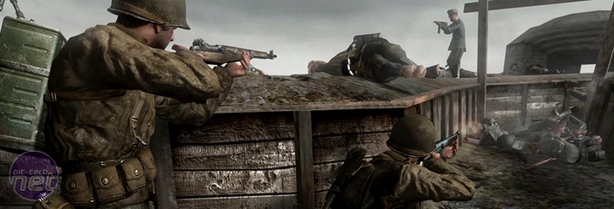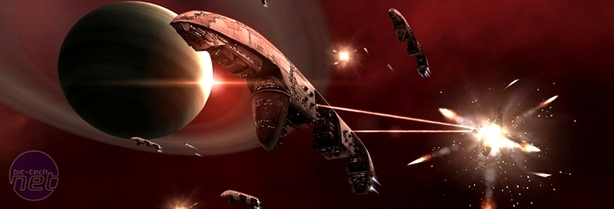
I’m a Mechanic, not a Doctor!
While there have been some massive steps forward in terms of what games can and are willing to do story-wise though, plot is actually the aspect of game design which has come on the least in the last twenty years.Graham Linehan recently said on Charlie Brooker’s GamesWipe that he thinks a lot of that is because game designers don’t read enough books and that modern games are made by people who watch more films than they read stories. He’s probably onto something there, we reckon – especially when you consider the rambling nonsense which is the Metal Gear Solid series.
What’s interesting about looking at the changes in game mechanics over the last decade or two though is that it’s been a fairly hit and miss affair, with trends getting quickly and firmly established.
Once an idea has been labelled as suitably good for game design then it seems to become so firmly entrenched in the gamers’ minds that even Manic Miner wouldn’t be able to dig it out. That’s why we still think it’s fine to run over health-kits that instantly apply themselves, or why we always think of health as a percentile – and have done ever since Doom. Even the Half-Life games, long admired and acclaimed for bringing about a change in game design, stayed with these conventions for better or worse.
Recently though, there have been some creeping changes in game mechanics – though again it’s a case of specific ideas becoming norms so quickly that we easily take them for granted. Things like Halo’s regenerating health and Gears of War’s cover mechanic are now commonplace. Likewise, it’s rare to find a game where you can’t score an insta-kill with a headshot and it has been that way ever since Unreal Tournament.
Oh, and don’t even get me started on the idea of crates in games. Originally coming about because of the technology limits, crates have become so prevalent in games that the venerable Old Man Murray at one point launched a Time ‘til Crate review system. It’s a shocking indictment how far we haven’t come, to be honest.
That’s not to say there aren’t games out there trying something different, with titles like Call of Cthulu and Fallout standing out the most, despite being crate filled. While most games of the period were using the same tired health systems, Fallout turned things around by making the location-specific damage technology apply to you, the player – forcing you to heal crippled limbs specifically. Call of Cthulu meanwhile took things to a deeper level by requiring certain treatments for certain types of wound in a real-time first person setting.
Rather than focusing on specific mechanical ideas though, it’s easier to look at how larger ideas have been born into the games industry. Again, we all take MMOs for granted nowadays, but it’s actually quite mind-blowing to consider the concept in full. Twenty years ago you were lucky if you even knew what something like Habitat was and it wasn’t until Doom arrived that the potential of PC multiplayer first occurred to most people.
Nowadays though you’re considered a freak if you haven’t at least tried World of Warcraft – there are professional-level sports which can’t achieve the same level of market penetration!
The truly tantalising thing about MMOs though is that the idea is still in its infancy and there’s potentially a lot of interesting stuff that developers haven’t investigated yet. A hell of a lot more interesting than WoW anyway. All you need to do is take a look at something like EVE Online, with its player-lead governments and year-long wars to see what can be done with the MMO framwork. Some of the fan fiction built up around MMOs can be really interesting, but when you get to something like EVE then the really fascinating stuff isn’t the fiction – it’s the true stories of players weaving hugely devious and political betrayals against rival corporations.
In terms of being on the cutting edge of game mechanics and creating a truly virtual world, there’s really nothing as magnificent as EVE Online. It practically sits aside from all other games, apparently content to be the cerebral overseer of innovation in PC gaming and showing how far games can go with their core ideas, if they want. If Half-Life was Bruce Willis then EVE would be Stephen Fry, gently tutting to himself.

MSI MPG Velox 100R Chassis Review
October 14 2021 | 15:04











Want to comment? Please log in.